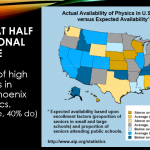When I was a kid, I used to watch Fat Albert, a cartoon about a bunch of kids living in "the projects" in some urban setting. The kids had a common insult for eachother: "You're like schoooool in the summah. Noooo claaasssss." I thought this was so funny that I occasionally used it on my friends.
Years later, as a high school student, I learned that the insult had a major flaw. That there was class in the summer, and it was for kids who failed classes during the school year. I was not one of those kids. In fact, the thought of failing a class was so foreign to me that it never even dawned on me that instead of hanging out with my friends or working for minimum wage throughout July and August, that I would be re-learning math or science to make up for a credit deficiency. In my mind, summer school was for losers.
I've tried to use that message on my current students who, due to missing deadlines or not doing their homework, are at risk of failing one or more classes. I say to them "Imagine spending all summer here, doing algebra. Doesn't that sound terrible? All you have to do is turn in your homework and you can be FREE this summer!"
The problem is that many of my students don't see freedom during the summertime as a good thing. They love school and would rather be here with their friends than at home doing nothing. They would rather be focusing on one subject over a sustained period of time than several subjects each day. They would rather be in a smaller group setting with more teacher attention. And some of them simply need more than a school year to gain proficiency in algebra, geometry, or biology.
This year, my school is offering some summer classes to kids that have credit deficiencies. The attendance and tardy policies are more stringent than they are during the school year, and the hours are long: 9-3 in one class. The program is packed, the kids are engaged, and not a single one of them has come late yet. Not even once. In short, they love summer school.
Maybe we should stop using summer school as a reaction to credit deficiency but rather schedule some kids, for whatever reason, into an extended school year that includes the summer. Perhaps this would help students feel ok about the fact that not all kids learn at the same pace or need the same things.
If I were from another culture doing a school study on my school right now, in June, I would assume that summer school is for a self-selected group of kids that prefer to learn in large blocks of time with the ability to focus deeply on one subhect rather than multiple subjects. I might even go back to my home country and say to my colleagues "You should see what those American summer school kids are doing!"








